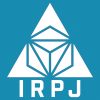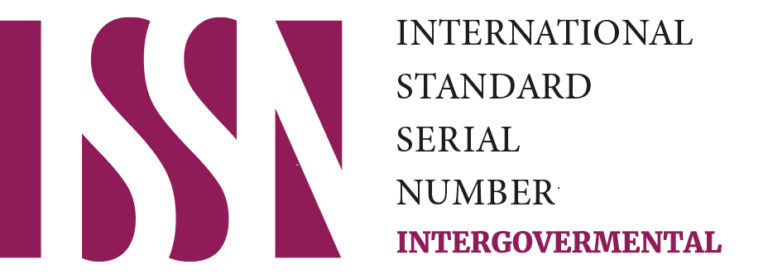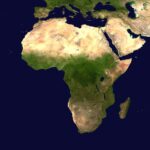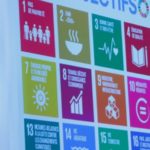1. Introduction
The low level of development in the developing world most especially in Africa is partly due to wealth unequally distributed, the existence of the personal rule paradigm, the lack of good governance and massive corruption by heads of government. Empirical evidence showed that, both in developed and in developing economies, countries have relatively high GDP per capita but low indicators of development such as literacy, rate of infant mortality, access to drinking water, life expectancy, education, etc. This is partly due to wealth being unequally distributed and has shown in cases of relatively low GDP per capita and high indicators of development in countries where income is more equally distributed. Human development is a process that allows for an environment where people enjoy long, healthy and creative lives is regarded as a better measure of well-being.[1] Human development is measured using the Human Development Index (HDI) of the United Nations Development Programme (UNDP).
Investments in Human Development increase both aggregate demand and effective quality of life. A better quality of life will generate a better and more skilled labour force, with positive effects on economic growth. HDI is a more realistic measure for economic development than the Gross Domestic Product (GDP). In all economics, GDP is the only magnitude that is expected to grow forever – never to reach an economic limit at which the marginal cost of further growth becomes greater than the marginal benefits. Investments in Human Development raises both aggregate demand and effective quality of life. Investment in human capital can quash many of the characteristics of the labour force that act as impediments to greater productivity such as lack of incentive and immorality, poor health, illiteracy, unreceptive to new knowledge, and fear of change.[2]
2. Under-Development in Developing Nations
Under-development refers to when resources are not used to their optimal socio-economic capacity or potential, with the result that regional or local development is slower than they should. Underdeveloped nations are often distinguished by a large percentage of disparity between the poor and rich populations, and a weak balance of trade. A developing nation can also be called a less developed nation or underdeveloped nation. An underdeveloped nation is a nation with a low human development index (HDI) and an industrial base that is less developed relative to other nations.[3] There is no specific agreement that makes a nation developed and less developed and which nations fit the two categories, however, there is a general reference such as nation’s Gross Domestic Product per capita compared to other nations.
The Human Development Index (HDI) by UNDP is the most effective instrument in measuring development and analysing developing nations progress. The Human Development Index ranks scores each nation’s level of development according to three sets of parameters of development indicators: education, health, and income. About 43% of people in developing nations live on less than $2 as at 2018 according to the World Bank and a third struggle to live on less than $1 a day.[4]
2.1. Causes of Under-development
The African continent is endowed with natural resources such as gold, diamond, uranium, crude oil, grains, coffee, tea. A continent with these numerous amounts of resources should occupy the most developed economies in the world, almost every country in Africa is blessed with an enormous amount of natural resources in which the west survives on. So why is Africa under-developed? Colonialism did very little in developing strong, indigenously rooted institutions that could tackle the development needs of modern states. Economic crisis and unsustainable debt, political instability, and civil wars have all taken their toll over the past decades and more.[5]
Africa’s underdevelopment is due to the following:
- Lack of good governance
- Dependency theory
- Political and economic injustice
- Underutilization of natural resources
Lack of Good Governance
Most African economies are faced with leadership problems, African leaders are known to not adhere to the rule of law and the abuse of power for personal gains is rampant. African countries that are known for having democratic principles are often faced with political elites that are not after the progress of the common man or the upliftment of the nation’s economic prowess but in the harnessing of state resources for personal gains. African countries are faced with huge corruption, syphoning funds meant for the development of social and economic infrastructures which are supposed to drive development. Indeed, corruption is one of the greatest challenges of the contemporary world. It undermines good governance, fundamentally distorts public policy, leads to the misallocation of resources, harms the private sector and particularly hurts the poor. Many aspects of bribery and corruption include giving or accepting gratification through agent, fraudulent acquisition of property; fraudulent receipt of property. Offences committed through the postal system, deliberate frustration of investigation, making false statements, bribery of public officer; using office or position for gratification; bribery transactions; false or misleading statements to the commission and attempt (conspiracy) punishable as offences. Corruption respects no national boundaries and it deepens poverty around the globe by distorting political, economic and social life. Transparency International (TI) was born from the experience of people who witnessed first-hand the real threat to human lives posed by corruption. Today, corruption at the highest levels captures headlines everywhere, and people are becoming aware of its disastrous consequences.[6]Improving governance means building better bureaucracy, increasing adherence to the rule of law, managing expenditure, and reducing corruption and revenue generation in a sustainable form.[7]
Dependency theory
The dependency theory states that the causes of under-development are the total dependence on the industrialised economies while internal elements of developing economies are irrelevant. The political and economic interest of industrialised economies determines their development or under-development.
Political and Economic Injustice
Political injustice encompasses the violation of individual entitlement which includes the violation of voting rights, freedom of speech or religion, and abuse of the rule of law. These injustices are often part of a political system in which only a few can have a voice or representation in processes and decisions that may affect the wider population. The state’s failure to provide basic amenities such as adequate social and economic infrastructure could be termed as economic injustice.[8]
Underutilisation of natural resources
As seen in the image below, Africa is endowed with an enormous amount of natural resources and due to corruption, greed, and lack of improvement in technological advancement, Africa’s natural resources has not been beneficial to the continent. A country like Nigeria with a huge amount of crude oil still imports finished petroleum products. If a functional refinery was in place, Nigeria will harness its crude and refine its crude itself, this will not only create jobs but will save the country millions of dollars used in petroleum product importation and that amount of money can be invested in social and economic infrastructures that will drive development.
Showcasing deposits of Africa’s Natural Resources[9]
3. Economic Growth, Poverty and Sustainable Development
The rate of poverty in Africa is on the increase, and the eradication of poverty is key in the attainment of sustainable development and economic growth. The high rate of economic growth is regarded to be a necessary condition in fighting poverty. However, it has also been stated that in assessing links between economic growth and poverty other crucial and external factors associated with a real enhancement in people’s quality of life should be placed in consideration[10].
Prior to the world becoming globalised, nations had barriers that reduced trade. A developing nation could not fully utilize its abundance of labour if it could not produce and export significant quantities of goods to wealthier nations abroad. The developing country is most likely surrounded by similar emerging economies that could not afford to consume the necessary amount needed to affect change. The wealthier developed countries would benefit from the savings realized from lower production costs. Developed countries would not have to devote as many resources to the production of goods. Instead, the wealthier nation’s human capital could be spent on more highly leveraged activities, namely science, and innovation. “Since the 1960s, manufacturing in North America and Europe has become a smaller part of the economy when measured as a share of GDP and as a share of overall employment.’’[11] While simultaneously reducing labour-intensive manufacturing jobs the larger industrial economies have made enormous technological leaps forward.
The more people that are in the economy equates to additional producers and consumers. Essentially, the additional participants in the economy facilitate increased economic activity. “As populations increase, markets expand, and the expanded markets induce greater specialization, which in turn increases output and productivity.” The expansion of economic activity would parallel the expansion of growth. Globalization allows a productive nation to capitalize on its comparative advantage by increasing the amount that the nation can export.[12]
In analysing direct correlations between these two variables (poverty rate and economic growth) other factors such as foreign aid, international cooperation, Foreign direct investment, and population growth should be taken into cognizance.[13] The persistent problem of poverty in developing nations has led to the constant question about the efficacy of economic growth in impacting poverty reduction. Kuznets[14] empirical studies highlighted the role of economic growth in dealing with poverty. In general, they found that economic growth plays a crucial role in poverty reduction.
This has been supported by various work at the World Bank.[15] The rise in per capita GDP is directly related to a rise in the average income of the poor, making economic growth positively associated with poverty reduction.[16] Several factors contribute to the persistence of national poverty, and corruption is definitely one of them. Oil and Gas have brought wealth to Nigeria, but these industries have historically provided opportunities for corruption on a massive scale.[17]
The Kuznets Hypothesis – An influential argument as to why we might expect inequitable growth in poor countries was sketched by Kuznets[18]. This claims that inequality will increase in the early stages of growth in a developing country and then after some point it will begin to fall i.e., the relationship between inequality (on the vertical axis) and average income (horizontal) will trace out an inverted U. Kuznets did not set out a formal theory of why this might happen but sketched an argument which has subsequently been formalized. As typically presented, the “Kuznets hypothesis” assumes that the economy comprises a low-inequality and low mean rural sector, and a richer urban sector with higher inequality. Growth occurs by rural labour shifting to the urban sector, such that a representative slice of the rural distribution is transformed into a representative slice of the urban distribution. Thus (by assumption) distribution is unchanged within each sector.
Starting with all the population in the rural sector, when the first worker moves to the urban sector inequality must increase. And when the last rural worker leaves, it must clearly fall again. Between these extremes, the relationship between inequality and average income will follow an inverted U. Kuznets himself was tentative about the hypothesis.[19]
Economic policies and strategies through economic reforms often enhance the Impacts of growth on poverty. Poverty reduction objectives are of raising the income levels of the poor on a sustainable basis, and there are many ways to attaining this goal. Reducing poverty can arise through redistribution among households at an existing level of average income, growth in average incomes, or a combination of the two.[20]
In sustaining a high rate of economic growth in Africa, from which poverty could be reduced drastically, measures such as stable macroeconomic policies, huge investments in agriculture, education, infrastructural development are key in driving stable sustainable development and growth. Huge investments in agriculture, infrastructural development will drive an increase in employment thereby making families have access to disposable incomes and enable them to save which can in-turn results into investment thereby adding to the GDP of that Nation. Poverty must be eradicated if sustainable development is to be achieved and governments need to have the political will in driving good governance thereby fostering rapid sustainable development.[21]
4. Factors that Interact positively in driving economic growth and development
4.1. Human Capital
Human capital is said to be the set of skills that the labour force possesses. The flow of these skills is forthcoming when the return to investment exceeds the cost (both direct and indirect). Returns to these skills are private in the sense that an individual’s productive capacity increases with more of them. But there are often externalities that increase the productive capacity of others when human capital is increased.[22] An improvement in the skills of workers increases the outcome simply because skilled workers are more productive. Knowledge is strictly connected with school and education. This directly associates human capital with “learning by schooling” and “learning by doing”, allowing human capital to become reproducible. Physical capital integrated by this definition of human capital is part of a cumulative and reproducible process which avoids decreasing return to scale.
4.2. Openness
The engine of economic growth often revolves around trade, nevertheless, globalisation has shown that the performance of opened economies can vary consistently. According to Rodrik,[23] the best performing countries are the ones that are integrated into the world economy with appropriate institutions which can support the impact of globalisation on the domestic market and social domestic issues. Countries with poor political institutions, weak conflict management institutions, and strong social cleavages suffer from external shocks and do not perform well in the world economy.
International trade contributes to driving economic growth through a process of structural change and capital accumulation. As in the case of Ireland, a structural change had already taken place during the 1970s and created conditions which allowed the Irish economy to grow considerably in the 1990s and later in the 2000s.[24] A country which protects their goods from international competition by raising tariffs on goods made with intensive skilled work will have as an effect an increase, at home, in the price of goods which use intensive skilled work.
4.3. Human Development
The idea that the GDP is an absolute and reliable measure of development has been widely criticized by development economists, a great deal of empirical evidence shows that, both in developing and in developed economies, some countries have relatively high GDP per capita but very low indicators of development such as literacy, access to drinking water, rate of infant mortality, life expectancy, education, etc.[25] This is partly because wealth is unequally distributed and there are cases of relatively low GDP per capita and high indicators of development in countries where income is more equally distributed. Investments in Human Development increase both aggregate demand and effective quality of life. A better quality of life will generate a better and more skilled labour force, with positive effects on economic growth.
4.4. Institutions
Economic researchers have shown that institutions and good governance matter in economic organisation and rising productivity. Institutions are in general defined as “the rules of the game”. A more sophisticated definition of institutions is “a set of social rules that structure social interactions.” If we consider this definition of institutions, then the explanation of development should be consistent with that of Kuznets[26] which states that, “the transformation of an underdeveloped into a developed country is not merely the mechanical addition of a stock of physical capital: it is a thoroughgoing revolution in the patterns of life and a cardinal change in the relative powers and position of various groups in the population”. Consequently, in order to change institutions, the prevalent social rules need to be changed. In emerging economies, informal economic institutions (i.e. uncodified and prevalent social rules) can be very resistant towards change and inertia may occur.
This is one of the most important problems which inhibit development. Institutional policies and an active State role are therefore needed to favour cultural change and foster development. To characterize institutions and institutional reforms is a very difficult task and institutional economists are aware of this. Non-income dimensions of development are better explained by a particular institutional index such as participatory rights and democratic accountability than property right institutions, while democracy and the rule of law are both good for economic performance.
Good governance and quality of institutions are the main sources of economic growth and determine the differences between the output of the various countries. Social Infrastructure” and governmental policies explain the various levels among countries of the residual productivity, which in turn, is based on the GDP level of the countries.[27] However, very often the main problem with this analysis is a reliable estimate of the impact of institutions on economic performance. Usually, rich countries have better institutions.[28]
5. Conclusion
African nations continue to experience the provision of insufficient electricity, bad roads, poor health care delivery, dilapidating educational system, and a population entrenched in poverty and hunger. In the developing world, the middle-class does not exist because the disparity between the rich and the poor is huge.
This paper indicates that sustainable development can only be achieved in a corrupt-free society. The need for the developing world, to develop its human and natural resources to full capacity is crucial in moving from its stagnant development. Infrastructure needs to be built and maintained, an enabling environment for jobs to be created as well as the need to grow the SME’s is quite crucial in economic development. The African Nation needs to be a producing continent. The manufacturing, agricultural and natural resources sectors of the economy should be harnessed to its fullest of potentials.
Basic education is critical to participation and productivity in economic life. A healthy literate labour force increases both the amount of growth realised from establishing a sound investment climate and strongly reinforce the poverty reduction benefits from that growth. The example of education clearly shows that the two pillars of investment climate and empowerment are closely connected and support each other. Hence the need to prioritize basic education in the developing world. This study indicates good governance is key to achieving the sustainable development goals, improving Africa’s economy, uplifting the infrastructural and social sector as well as improving the lives of the populace.
References
Bräutigam Deborah A., and Stephen Knack. “Foreign Aid, Institutions, and Governance in Sub‐Saharan Africa.” Economic Development and Cultural Change 52, no. 2 (2004): 255-85
Bruno Michael, Ravallion Martin, Squire Lyn. Equity and Growth in Developing Countries: Old and New Perspectives on Policy Issues (November 30, 1999). World Bank Policy Research Working Paper No. 1563
Economic Development http://www.econ.nyu.edu/user/debraj/Courses/GrDev19Warwick/Notes/RayCh2Update.pdf (Accessed 16 August 2019)
Goldin, Claudia, and Lawrence F. Katz. Human Capital and Social Capital: The Rise of Secondary Schooling in America, 1910 to 1940. Cambridge, MA: National Bureau of Economic Research, 1998.
Hall, Robert E., and Charles I. Jones. Why Do Some Countries Produce So Much More Output per Worker than Others? Cambridge: National Bureau of Economic Research, 1998.
Hatthachan Phimphanthavong, The Role of Sustainability in Development Analysis, (Trento, 2014)
Kuznets, Simon Smith. Economic Growth and Structure. New York: Norton, 1965.
Levy, Brandon, The Role of Globalization in Economic Development (2012), https://ssrn.com/abstract=2233648(Accessed 16 August 2019)
Mapping Africa’s natural resources https://www.worldbulletin.net/world/mapping-africas-natural-resources-h191272.html (Accessed 29 July 2019)
McKay, Andrew. Poverty Reduction through Economic Growth: Some Issues.1997
Nwaobi Godwin Chukwudum. Corruption and Bribery in the Nigerian Economy: An Empirical Investigation. (Abuja: 2005)
Okonjo-Iweala Ngozi and Osafo-Kwaako Philip. Nigeria’s Economic Reforms: Progress and Challenges (March 2007).
Owoeye Taiwo and Adenuga Dare. Human Capital and Economic Development – An Empirical Analysis of a Developing Economy (1970-2000)
Pasquale Tridico. The Determinants of Economic Growth in Emerging Economies: A Comparative Analysis, (University of “Roma Tre: 2007)
Pro-Poor Growth: A Primer Martin Ravallion, Development Research Group, World Bank, http://documents.worldbank.org/curated/en/358321468761705849/pdf/wps3242growth.pdf (Accessed 16 August 2019)
Rodrik, Dani. The New Global Economy and Developing Countries: Making Openness Work. Washington (D.C.): Overseas Development Council, 1999.
Roemer, Michael, and Mary Kay. Gugerty. Does Economic Growth Reduce Poverty? Technical Paper. Cambridge, MA: Harvard Institute for International Development, 1997.
Sullivan, Arthur; Steven M.Sheffrin, Economics: Principles in Action, (New Jersey: Prentice-Hall, 2003)
The World Bank https://www.worldbank.org/en/topic/poverty/overview (Accessed 10 July 2019)
UNDP, Human Development Reports http://hdr.undp.org/en/humandev (Accessed 16 August 2019)
Walsh, Patrick Paul, and Ciara Whelan. Firm Performance and the Political Economy of Corporate Governance:Survey Evidence for Bulgaria, Hungary, Slovakia and Slovenia. Leuven, 1999.
[1] UNDP, Human Development Reports http://hdr.undp.org/en/humandev (Accessed 16 August 2019)
[2] Owoeye Taiwo and Adenuga Dare. Human Capital and Economic Development – An Empirical Analysis of a Developing Economy (1970-2000)
[3] Sullivan, Arthur; Steven M.Sheffrin, Economics: Principles in Action, (New Jersey: Prentice Hall, 2003) p. 471
[4] The World Bank https://www.worldbank.org/en/topic/poverty/overview (Accessed 10 July 2019)
[5] Bräutigam Deborah A., and Stephen Knack. “Foreign Aid, Institutions, and Governance in Sub‐Saharan Africa.” Economic Development and Cultural Change 52, no. 2 (2004): 255-85
[6] Nwaobi Godwin Chukwudum. Corruption and Bribery in the Nigerian Economy: An Empirical Investigation. (Abuja: 2005)
[7] Bräutigam Deborah A., and Stephen Knack. “Foreign Aid, Institutions, and Governance in Sub‐Saharan Africa.” Economic Development and Cultural Change 52, no. 2 (2004): 255-85
[8] Bruno Michael, Ravallion Martin, Squire Lyn. Equity and Growth in Developing Countries: Old and New Perspectives on the Policy Issues (November 30, 1999). World Bank Policy Research Working Paper No. 1563
[9] Mapping Africa’s natural resources https://www.worldbulletin.net/world/mapping-africas-natural-resources-h191272.html (Accessed 29 July 2019)
[10] Roemer, Michael, and Mary Kay. Gugerty. Does Economic Growth Reduce Poverty? Technical Paper. Cambridge, MA: Harvard Institute for International Development, 1997.
[11] Levy, Brandon, The Role of Globalization in Economic Development (2012), https://ssrn.com/abstract=2233648(Accessed 16 August 2019)
[12] Levy Brandon. The Role of Globalization in Economic Development (2012)
[13] Hatthachan Phimphanthavong, The Role of Sustainability in Development Analysis, (Trento, 2014) p. 50
[14] Kuznets, Simon. Economic Growth: Durham, NC: Duke University Press, 1955
[15] Pro-Poor Growth: A Primer Martin Ravallion, Development Research Group, World Bank, http://documents.worldbank.org/curated/en/358321468761705849/pdf/wps3242growth.pdf (Accessed 16 August 2019)
[16] Roemer, Michael, and Mary Kay. Gugerty. Does Economic Growth Reduce Poverty? Technical Paper. Cambridge, MA: Harvard Institute for International Development, 1997.
[17] Nwaobi Godwin Chukwudum. Corruption and Bribery in the Nigerian Economy: An Empirical Investigation. (Abuja: 2005)
[18] Kuznets, Simon. Economic Growth: Durham, NC: Duke University Press, 1955.
[19] Bruno Michael, Ravallion Martin, Squire Lyn. Equity and Growth in Developing Countries: Old and New Perspectives on the Policy Issues (November 30, 1999). World Bank Policy Research Working Paper No. 1563
[20] McKay, Andrew. Poverty Reduction through Economic Growth: Some Issues.1997
[21] Okonjo-Iweala Ngozi and Osafo-Kwaako Philip. Nigeria’s Economic Reforms: Progress and Challenges (March 2007).
[22] Goldin, Claudia, and Lawrence F. Katz. Human Capital and Social Capital: The Rise of Secondary Schooling in America, 1910 to 1940. Cambridge, MA: National Bureau of Economic Research, 1998.
[23] Rodrik, Dani. The New Global Economy and Developing Countries: Making Openness Work. Washington (D.C.): Overseas Development Council, 1999.
[24] Walsh, Patrick Paul, and Ciara Whelan. Firm Performance and the Political Economy of Corporate Governance: Survey Evidence for Bulgaria, Hungary, Slovakia and Slovenia. Leuven, 1999.
[25] Economic Development http://www.econ.nyu.edu/user/debraj/Courses/GrDev19Warwick/Notes/RayCh2Update.pdf (Accessed 16 August 2019)
[26] Kuznets, Simon Smith. Economic Growth and Structure. New York: Norton, 1965.
[27] Hall, Robert E., and Charles I. Jones. Why Do Some Countries Produce so Much More Output per Worker than Others? Cambridge: National Bureau of Economic Research, 1998.
[28] Pasquale Tridico. The Determinants of Economic Growth in Emerging Economies: A Comparative Analysis, (University of “Roma Tre: 2007) p, 1-14






